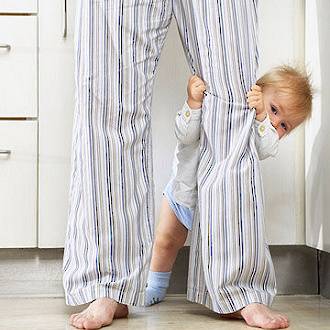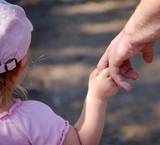Stranger anxiety in babies & toddlers
|
Stranger anxiety is a normal, common part of your baby's or toddler's development. Just as babies and toddlers go through different phases of language development and motor development, they also go through different stages of social development. Stranger anxiety is one of these stages.
|
You might also be interested in ...
How do I get help if I think my child has special needs?
As parents we all dream about the possibilities for our children long before they ever realise them. However what happens if your child does not develop like the other children of his/her age. What should you do if you have a worry about your child’s learning or development?
Taking care of your kids baby teeth
Kids baby teeth may only be around for a short time, but they’re more important than you might think. The health of your kids baby teeth is essential for their developing gums and for their permanent teeth which are growing underneath. Starting your kids off with good oral care can help protect their teeth for decades to come.







Just as babies and toddlers go through different phases of language development and motor development, they also go through different stages of social development. Stranger anxiety is one of these stages.
Stranger anxiety in babies & toddlers
Stranger anxiety is a form of distress babies and toddlers feel when they are exposed to people unfamiliar to them. It usually begins slowly and starts to show between 6 to 12 months old, but commonly around 8 to 9 months of age.
Babies and toddlers vary significantly in how much stranger anxiety they have. But most have some. The chances are that nothing will actually happen to hurt or frighten your baby or toddler, beyond the fear of strangers itself.
It is actually a sign that they are maturing psychologically. It means that they have learned the difference between people they know and people they don’t know. It also means that your baby or toddler is bonding more strongly to you.
Stranger anxiety may continue until your little one is around 18 months old and then it will start to go away.
Symptoms of stranger anxiety
Common symptoms of stranger anxiety for babies and toddlers include:
Dealing with stranger anxiety
Some ways to help your baby or toddler deal with stranger anxiety include:
More kids articles to enjoy:
- Managing separation anxiety in babies 6 months plus
- Anxious preschool children
- Tips for leaving your baby for the first time
Image source: corbisimages.com